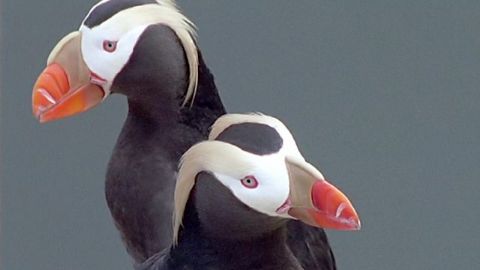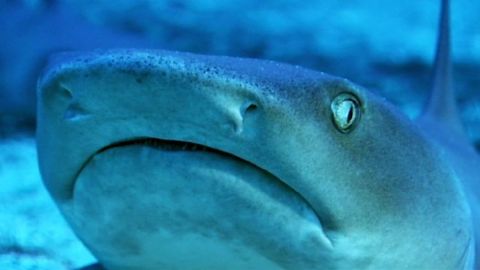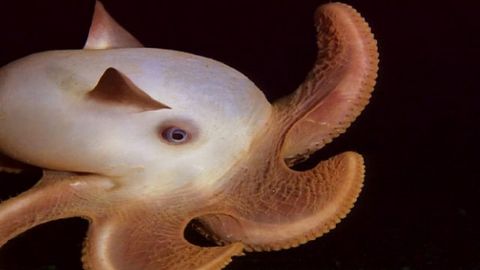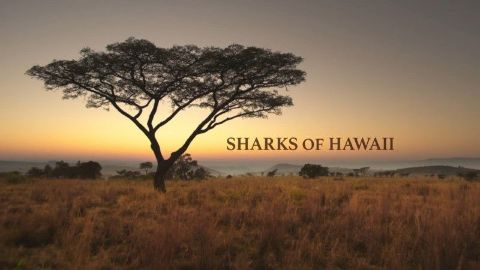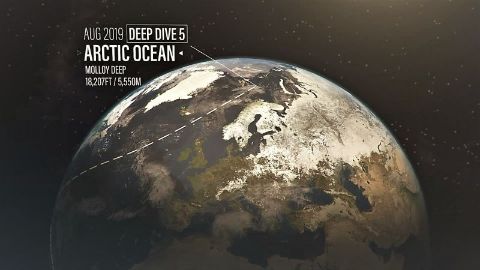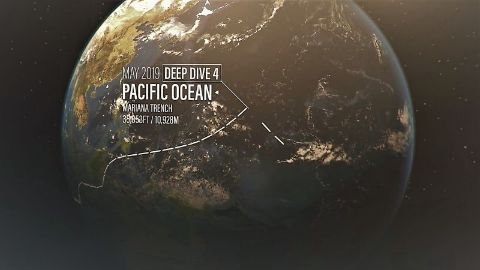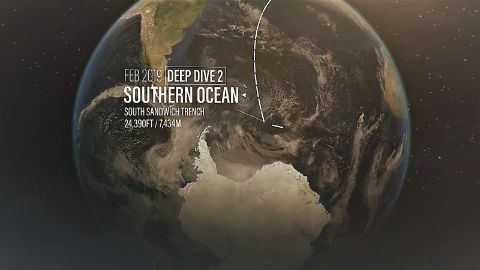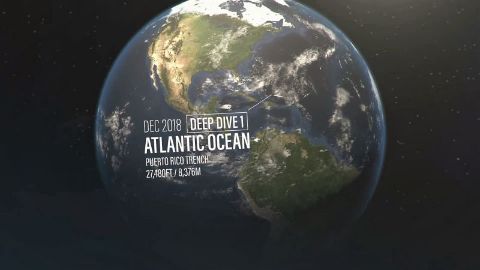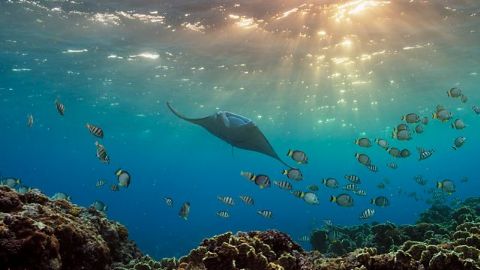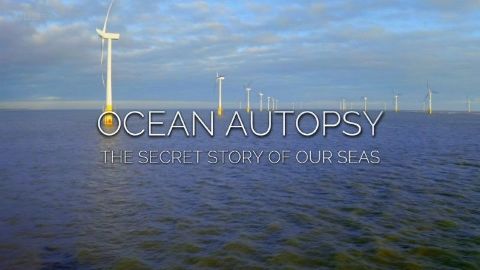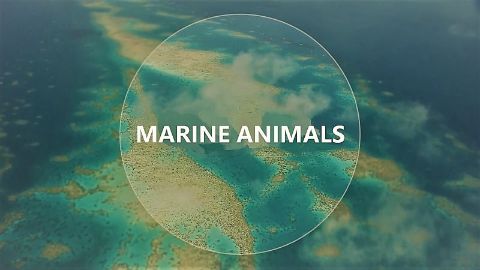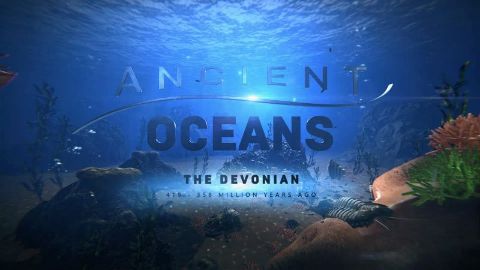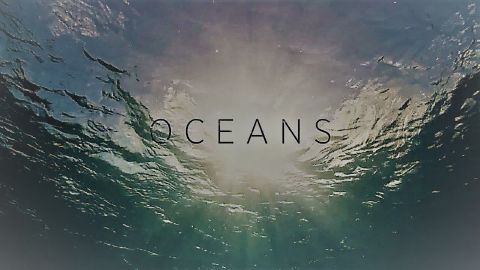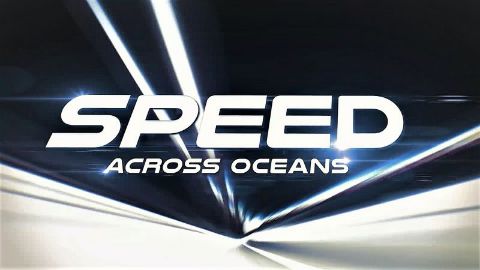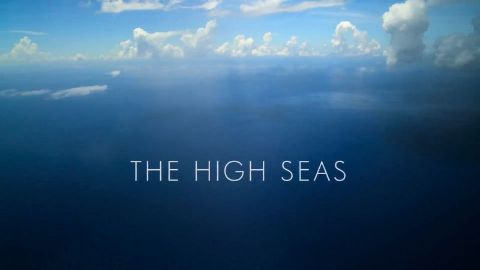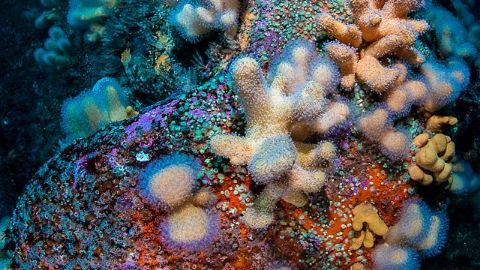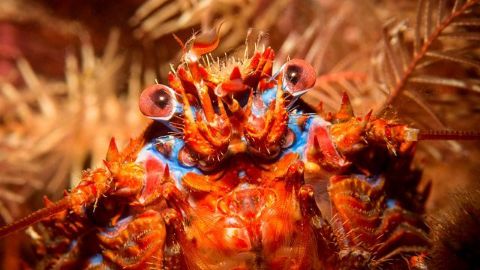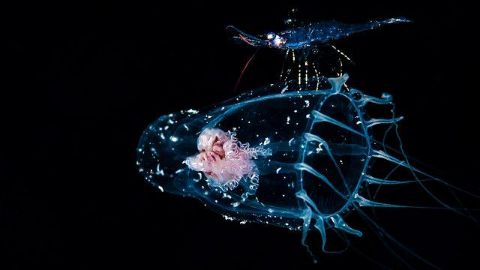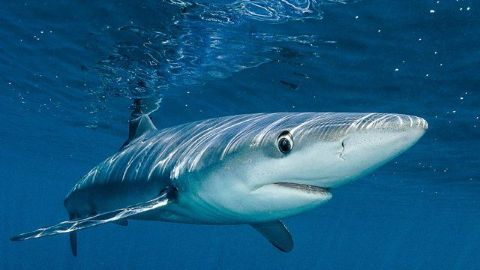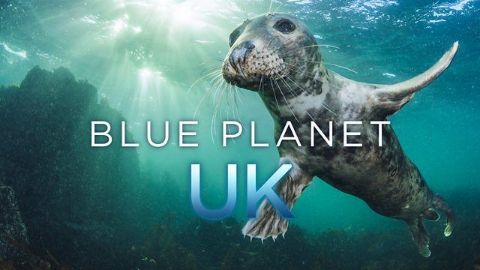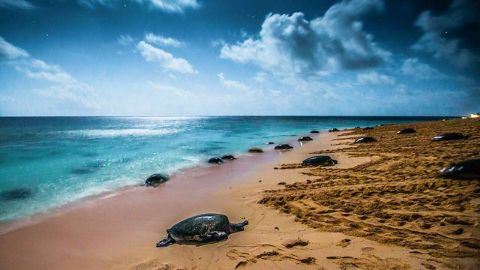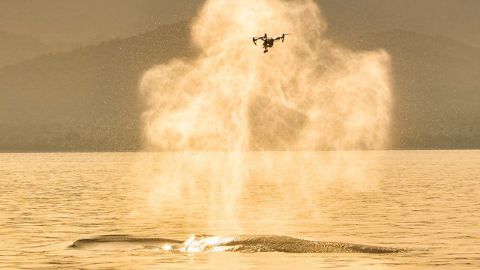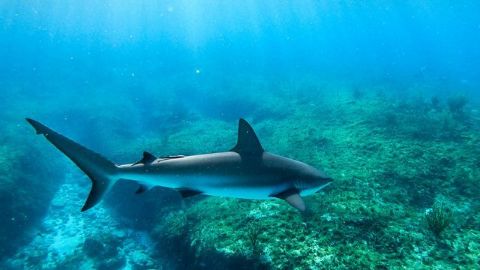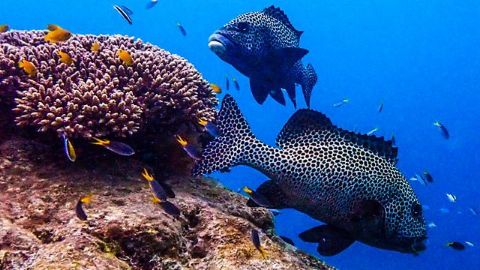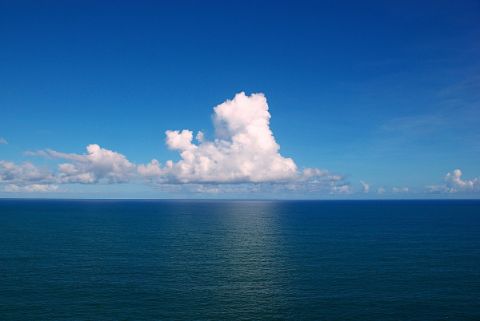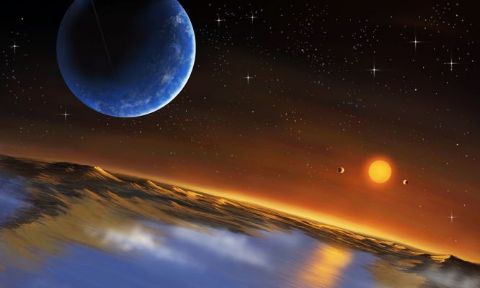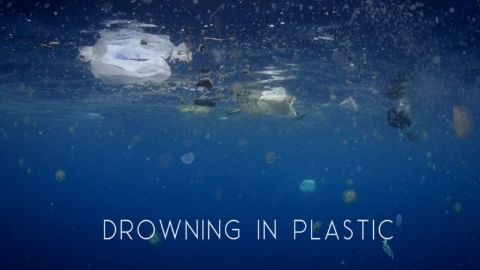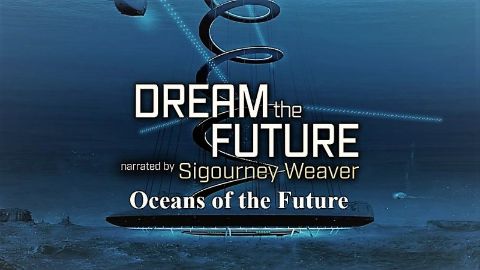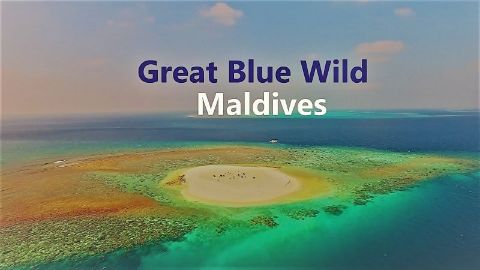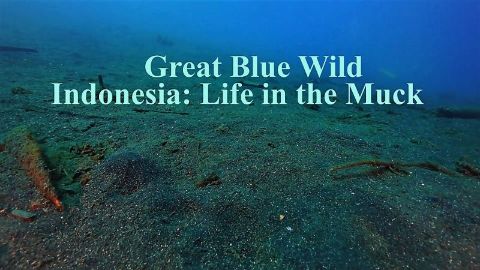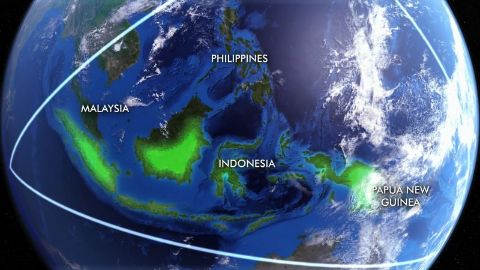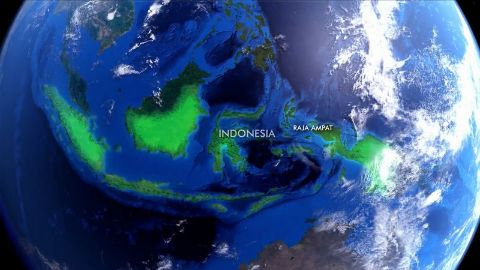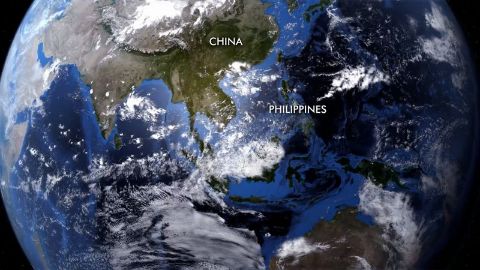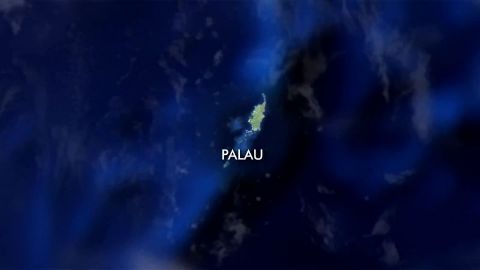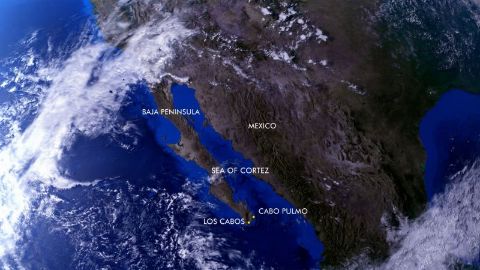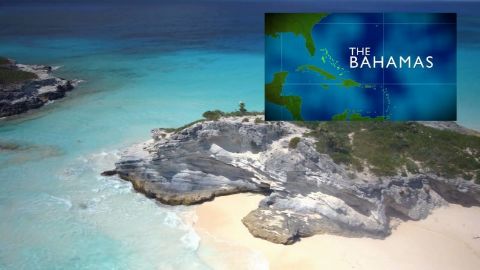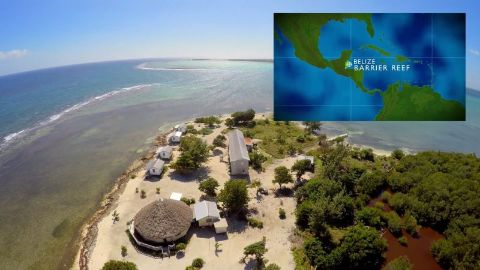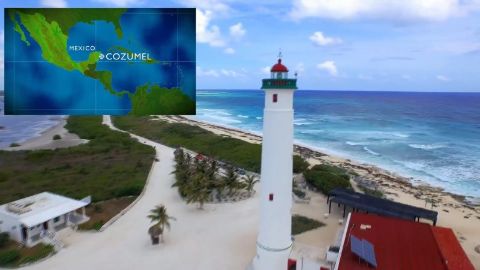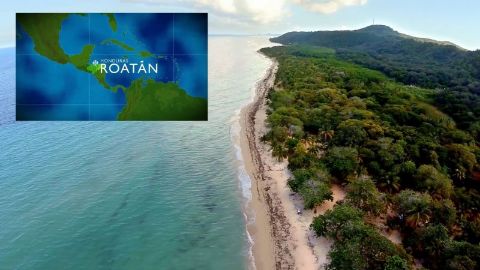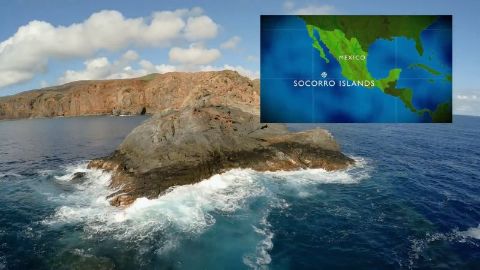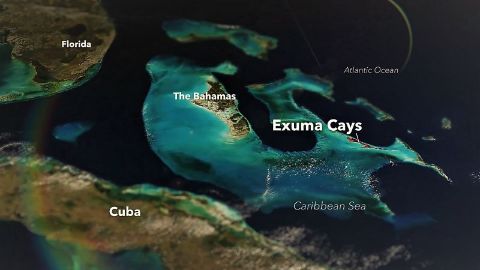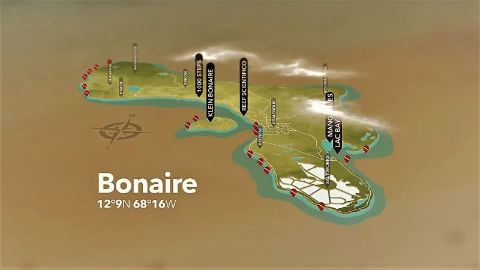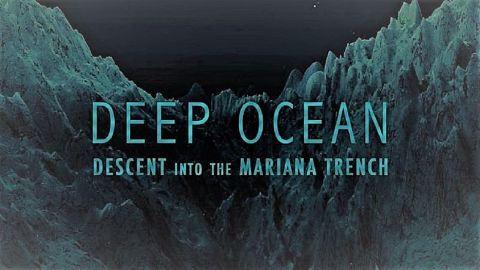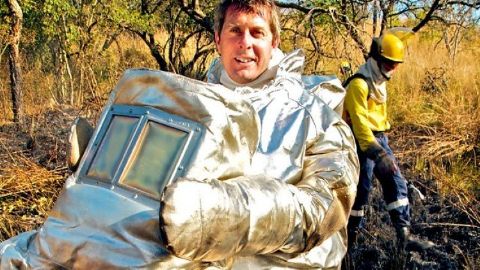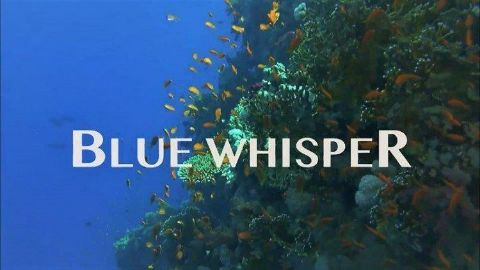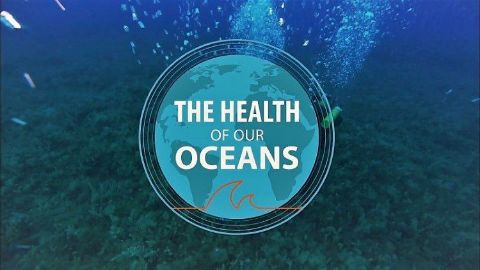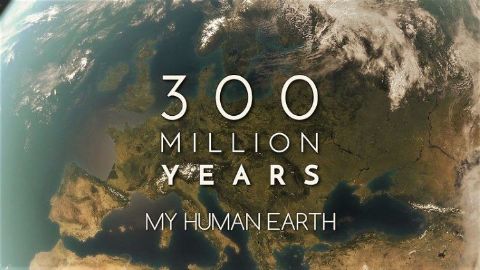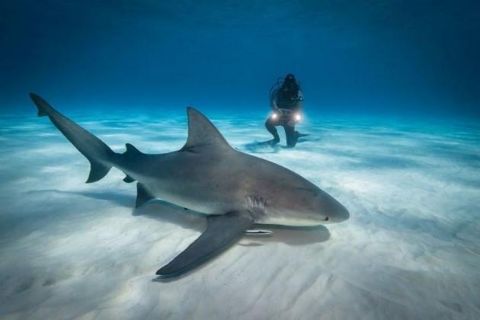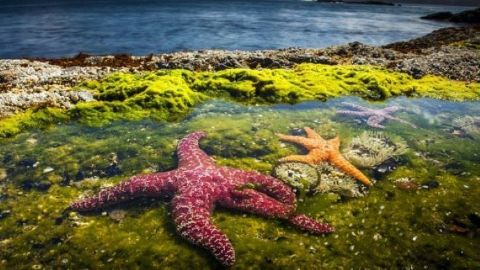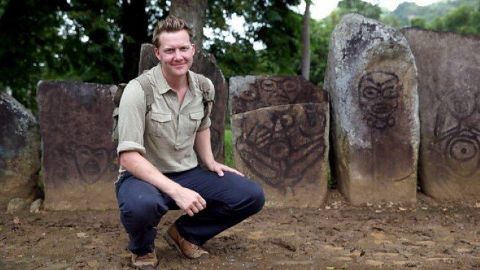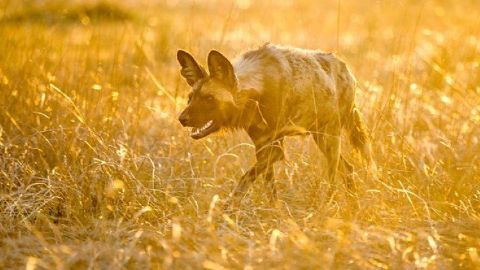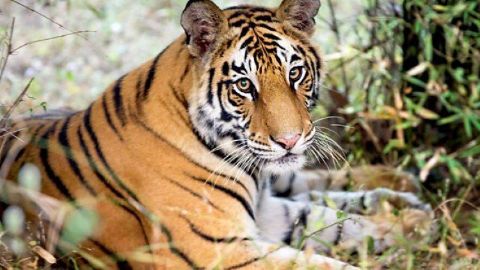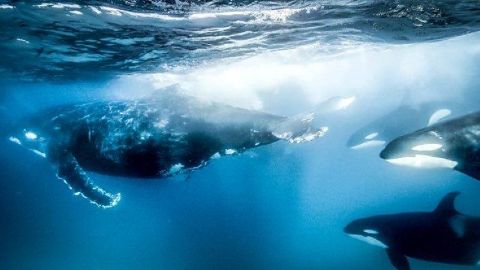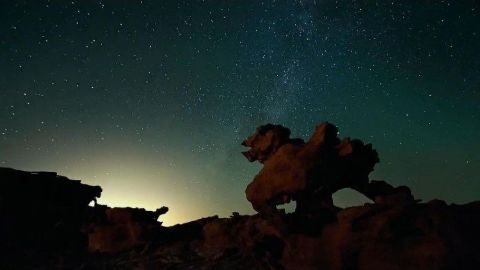oceans (107 videos) • 107 videos
Focuses on the oceans that surround the continent's coastline, which are home to more than 60 per cent of the world's marine species. Featuring footage of reef fish, manta rays, and a juvenile sperm whale, as well as the whirlpools that form in the Indonesian Throughflow.
Deep beneath the water's surface, the world's largest predator -- the Mosasaurus -- lies in wait to ambush unsuspecting prey.
Prehistoric Planet • 2023 • Nature
The wildlife inhabiting the world's oceans, from the shallow seas of the tropics, where predators like the lionfish can become the prey to one of the world's oddest hunters, to the greatest depths, where a massive siphonophore, longer than a blue whale, and a gulper eel with huge jaws are captured on film using specialised vessels designed to withstand the pressure. The episode also features the mating dances of mobula rays and the symbiotic relationship between Columbus crabs and turtles.
Planet Earth III • 2023 • Nature
Be it buffalo, polar bears, humpback whales or albatross chicks, migration is a vital survival strategy for animals to feed, reproduce and find homes.
Our Planet • 2023 • Nature
A thousand years ago, many millions of whales dominated the sea, with their ancient behaviours vital to the well-being of the oceans. These marine mammals are the ambassadors between one world and another, land and sea, their close communities only now being truly researched and understood. They are still a keystone species in our fragile ecosystem today, with crucial impact on our seas and the life contained within them. But whaling decimated their numbers over the last 150 years, in particular the whaling industry run by the KGB during the Cold War. In a basement in Odessa, top-secret Soviet whaling reports record the unimaginable number of whales killed. This film tells how surviving members of the Soviet leadership, and original Soviet whalers, uncover these secret records, allowing us to understand the magnitude of historical whale populations and the shocking impact of commercial whaling. Whale populations are now largely cherished across the world as we begin to understand these amazing animals, their intelligence and their important contribution to the sustainability and health of the oceans.
2023 • Nature
Chapter 1: Steve Backshall visits the Maldives, a country facing significant challenges because of climate change. Warming seas and the acidification of the oceans have led to coral bleaching on a massive scale. And increasingly unpredictable weather patterns could deal the final blow. 2022 saw the first mass coral bleaching during La Ni?a, a climate pattern that historically keeps oceans cool enough to avoid bleaching. The earth's reefs are now at a tipping point. But these extreme challenges are galvanising the science community to get out of their labs and into the field, experimenting with more novel and innovative techniques and trialling ideas that could just make a difference. Steve returns to Laamu Atoll to find out about one such cutting-edge project. Professor Steve Simpson and his team from Bristol University have identified that coral larvae, baby corals no bigger than a pinhead, move towards the sound of a healthy reef, a response that guides them to settle amongst a more biodiverse and healthier habitat, and in so doing, add to the coral population. Steve dives with Professor Simpson and records the sound of a healthy reef. With the help of a 360-degree camera, they are able to identify key marine life that make up these coral playlists. Liz Bonnin returns to California to investigate some surprising solutions for the relentless onslaught of the state's wildfire season. California's wildfires are becoming a yearly catastrophe, with the state government spending billions of dollars in the last five years to fight these out-of-control blazes. Liz discovers that ancient forest management techniques and the beaver, a misunderstood mammal, could help prevent them in the first place, providing powerful tools to sustainably protect our planet against the ravages of climate change. Liz visits the traditional reservation of the indigenous Tule River tribe, who have been practising a technique called 'controlled burning' for thousands of years. By regularly burning the twigs and leaf litter that collect on the forest floor, they reduce the amount of material that typically collects in forests and fuels megablazes. Liz joins the tribe on one of their cultural burns and finds out how they have protected their land and, importantly, their sacred sequoia trees. To prevent the fires from moving at speed across the landscape, scientists and indigenous communities are hoping that beavers can help solve the problem. Once found across North America, by 1900 beavers had been hunted virtually to extinction. Liz joins scientist Dr Emily Fairfax, who has been studying the benefits of introducing beavers into a landscape. Surrounded by burnt-out forest, a green oasis sits at it centre, the territory of a beaver family that has created what Emily describes as a 'speed bump' for wildfires. Chris Packham is in Greenland to learn more about the effects of global warming and the rate at which snow and ice are melting and retreating in the Arctic. He travels to a science research station on the island's remote north east coast, one of the most important locations in the world for the understanding of warming in the Arctic and its global impact. Chris joins an Arctic expedition as scientists from Aarhus University and Copenhagen Zoo track across the snow-covered tundra in search of musk oxen, an ice age survivor that can tolerate temperatures ranging from - 40 to +10 degrees Celsius. With the gradual warming of the Arctic, future conditions may not resemble anything the species has ever encountered. Now moving slowly northwards as temperatures rise, there are many questions to be answered: will populations become vulnerable to warm weather disease? How long will they have a territory that's cold enough for them to survive in? And what will they leave behind them? The conditions are gruelling. Chris and the team have to move fast across the vast landscape, hoping to dart and collar 21 of these huge, powerful creatures, taking hair, blood and stomach samples. We learn how the sophisticated collars and an array of science techniques will be able to tell us if they breed, feed, survive or perish in the years to come. Chapter 2: Gordon Buchanan returns to Brazil, Ella Al-Shamahi to Cambodia and Ade Adepitan to Kenya. Gordon Buchanan returns to Brazil, the most biodiverse country on our planet and home to one of the world's most important wetlands, the Pantanal. Gordon's here to revisit a pioneering project that is committed to saving one of the Amazon's iconic predators, the jaguar, and to understand the importance of a healthy ecosystem. The Pantanal is vital to the health of the jaguar's territory. Fed by the Amazon Rainforest's water cycle, it's an extraordinarily rich habitat, and home to an array of water and land species. Gordon takes to the water and sees first-hand how this place is perched on a knife edge. As climate change accelerates, the Pantanal is becoming drier, endangering its wildlife and vegetation, including the jaguar. Gordon hears from a local conservationist how the plans for up-river dams could severely impact this precious ecosystem. Habituating jaguars is a vital part of ecotourism, enabling paying guests to experience these iconic creatures. The profits fund vital research and this year Gordon follows the team on their annual collaring project, darting jaguars and collecting samples and data from these super-sized cats. Once sedated, Gordon gets the opportunity to get hands on with the scientists, witnessing for himself the range of samples and data the team are collecting. This will provide valuable insights into the jaguar's movements within their ever-changing habitat. Ella Al-Shamahi returns to Cambodia, an area experiencing increasing economic growth. This growth is putting massive pressure on natural resources, and is leading to expanding cities and potentially devastating over-exploitation of the natural world. Ella discovers the reality about our planet's most exploited resource after water – sand. The Mekong River is vital to the health of not only this region but to five other countries, and is being dredged for this valuable resource, endangering the structure and health of this mighty river system. Ella takes to the water with a leading Mekong expert to see the extent of the extraction. Unsustainable and highly destructive, mining could possibly sound the death bell for this precious ecosystem. UK scientists are using high quality satellite imagery that reveals the extent of the damage and there's hope that regulation can slow this exploitation. Biodiversity plays a vital role in building resilience in these threatened landscapes. Ella joins an expedition that will reintroduce the nearly extinct Siamese crocodile into the depths of the Cardamom Mountains. To date, the survival of these critically endangered animals has been down to the cultural connection between the local people and the crocodiles, who they consider sacred. Ella and the team are taking ten crocodiles to a safe and very remote site. The crocodiles are inserted into bamboo rolls, which are soaked in water to keep them cool, then bundled onto the back of mopeds and driven to the release site. It's a 24-hour journey, crossing rivers and tackling forest pathways, all the time ensuring the crocodiles are safely stowed. On arrival, the team acclimatise the animals before their final release. We meet those who discovered one of the last remaining crocodiles and an elder of the village explains the role of crocodiles and the natural world to his people. Ade Adepitan returns to Kenya to report on the devastating effect of rising temperatures and failed rains. The conditions are extreme, and the challenges, unimaginable. Both communities and wildlife are fighting to survive the worst drought in 40 years. When Ade visited Kenya in 2021, the elephants were severely affected by drought, but 2022 saw a new and sinister problem. People and elephants were now fighting over dwindling food and water supplies, even killing each other in their desperation to survive. Ade finds out about a project that could help farmers and elephants to co-exist until the next rains finally arrive. Using biology and behavioural science, leading elephant scientists, with the input of locals, have created affordable tools for repelling elephants from farms and reducing conflict. Ade travels to Sagalla, near Tsavo National Park, where its community is leading the way and testing these devices. He meets local farmer Jones, who has created what he calls a 'noisy gun' from tin cans and wood. Other devices include condoms full of chilli powder and beehives strung along fences. Ade finds a community under extreme pressure, but the ingenuity of the 'Human Elephant Coexistence' toolbox is providing a genuine ray of hope.
2023 • Environment
David Attenborough introduces the colourful underwater world of Britain and Ireland's oceans, including thousands of grey seals congregating on the Norfolk shoreline to give birth. Rich beds of sea grass act as important carbon storage areas, as well as providing home for seahorses, while on the shallow seabed, the spider crab undergoes a mass migration of epic scale.
Wild Isles • 2023 • Nature
Killer whales hunt for seals in our seas, golden eagles scavenge in snowy Scottish mountains, sinister woodland plants take pollinating insects hostage, and puffins are chased by greedy gulls that try to steal their hard-won catch.
Wild Isles • 2023 • Nature
Howard Hall, one of the world's foremost underwater filmmakers, brings to NATURE a lifetime of insights into how life in the ocean really works - in surprisingly cooperative communities built on age-old partnerships. Coral reefs turn out to be cosmopolitan cities where relationships thrive: a specialist shrimp, a baby damsel fish, and a porcelain crab all share the protection of an anemone; an urchin and a crab form an unlikely pair; fan corals each support their own kind of seahorse. They're all part of a vast system that only exists because everything is connected. From great whales to turtles, to sharks and tiny blennies, the ocean is full of creatures that need and support each other.
2023 • Nature
In the frozen wilderness of Antarctica, where oceans ice over and just staying alive is an achievement, one creature has perfected the art of survival - the emperor penguin. Eons of evolution have built an animal superbly adapted to the howling gales and sub-zero temperatures, but the emperor may have finally met its match. Parts of Antarctica are warming, giving birth to huge icebergs, and the consequences could be catastrophic for this majestic animal. In a place where all life is touched by the ice, it is a dramatic shift. Explore this region from its inhabitant's perspective, using state-of-the-art technology. By better understanding these amazing animals, researchers can help prepare for their future, as the balance of life in the Antarctic continues to change.
2006 • Nature
As spring begins after four months of winter darkness. Polar bears lead their cubs to hunt, beluga whales trapped by ice see the possibility of escape, harp seals teach their pups to swim, and bowhead whales come in search of food. Plus, a look at how the region is warming faster than anywhere else on Earth due to climate change.
Frozen Planet II narrated by Sir David Attenborough • 2022 • Nature
A pregnant Tuarangisaurus is in distress—and her young calf can sense it—as she travels waters that are home to the ocean’s deadliest predators.
Prehistoric Planet • 2022 • Nature
Water plants create beautiful, bizarre worlds. Flowers smother rivers and lakes. Plants fight and hunt. A river bubbles like champagne as plants create the atmosphere itself.
The Green Planet • 2022 • Nature
Ch1. Oceans In Cape Verde, Gordon starts the adventure with a look at one of the world's largest populations of nesting loggerhead turtles. He then heads to the Bahamas with Caribbean reef sharks, California to see young elephant seals and the British Isles to attach featherweight cameras to a squadron of gannets. Ch2. Australia In New South Wales, Gordon encounters a marsupial facing a complex set of challenges when he meets a population of kangaroos that are being pushed to the very brink by a coastal development boom. How are they surviving on the edge of this urban expansion? Gordon meets the scientists driven to find out more about what the roos are feeding on as they are pushed onto the coastal fringes. As we become immersed in their world, we get a better understanding of kangaroos' social lives and the impact of human encroachment on their diet. In southern Australia, we head to Adelaide, where one of the team's toughest challenges yet is to create the lightest of cameras to find out what the lure of the big city is to a colony of newly arrived fruit bats. Their appearance is a bit of a puzzle. Are they a threat to the local commercial fruit crops or have they found other ways to adapt to city life? For the first time ever, the fruit bats take our cameras up above the cityscape, showing us a unique view of their nocturnal worlds while providing information crucial to their future. In Queensland, we help scientists find out if koalas really deserve their dozy daytime reputation when we join researchers at a reserve to discover some incredible revelations surrounding their night-time manoeuvres. The team's tech allows us to shadow them after sundown, unveiling their remarkable agility and surprising navigational skills. Specially designed with tree-hugging in mind, koalacams offer an insight which could help koalas as we find out what they need to survive - not just here, but elsewhere in the country.
Animals with Cameras • 2021 • Nature
While all life began in the oceans, human beings now rely on technology to navigate the seven seas - left to our own devices; we're like the proverbial fish out of water. Only the other way around.
Animal Super Senses • 2020 • Nature
BECOMING COUSTEAU examines the epic life of Jacques Yves Cousteau, the ocean explorer who spanned the globe with a misfit crew of divers and filmmakers, under the lifelong creed, "Il faut aller voir" -- "We must go and see for ourselves". Adventurer, filmmaker, inventor, author, unlikely celebrity and conservationist: For over four decades, Jacques-Yves Cousteau and his explorations under the ocean became synonymous with a love of science and the natural world. As he learned to protect the environment, he brought the whole world with him, sounding alarms more than 50 years ago about the warming seas and our planet's vulnerability.
2021 • People
The Ocean is where life first experimented with the Mating Game, and over time this has led to some of the most ingenious mating strategies of all!
The Mating Game • 2021 • Nature
Prince William, David Attenborough and Shakira find out about inspiring people and projects across the world that can help us stop damaging the oceans and enable their revival.
The Earthshot Prize Repairing Our Planet • 2021 • Environment
Dr Sylvia Earle is on a mission to save our oceans. Mission Blue is part action-adventure, part expose of an Eco-disaster. More than 100 scientists, philanthropists and activists gather in the Galapagos Islands to help fulfill Dr. Earle's lifelong wish: build a global network of marine protected areas, like underwater national parks, to protect the natural systems that keep humans alive. As the expedition ends, the Deep water Horizon oil well explodes. With oil gushing into the Gulf of Mexico, Sylvia and an environmental dream team race around the world trying to defend her 'Hope Spots'.
2014 • Environment
120 metres down off the wild coast of South Africa lives an animal once thought to have been extinct for 65 million years - the coelacanth, locally known as Gombessa. A dinosaur fish, a living fossil, that remains the only link connecting fish to terrestrial tetrapods: its fins contain the beginning of reptile and mammal leg bones! And what about the vestigial lung found at the back of its huge mouth? …
2013 • Nature
Dr Martha Holmes looks at man's influence on the oceans. Is there a solution so that we can save our seas or is it too late to get us out of Deep Trouble?
Blue Planet I • 2001 • Nature
Revealing the titanic efforts behind Blue Planet, this diary reveals the skills and dedication of the film makers.
Blue Planet I • 2001 • Nature
David Attenborough narrates a natural history of the oceans, examining how animals from in and around the sea use the constantly changing coastal areas.
Blue Planet I • 2001 • Nature
As snails surf the waves in pursuit of a meal, how do the tides create opportunities for marine life?
Blue Planet I • 2001 • Nature
Developed over centuries, coral reefs house fragile ecosystems, but they too have to fight to survive.
Blue Planet I • 2001 • Nature
David Attenborough narrates a natural history of the oceans, exploring the richest waters on Earth, where the annual cycle of the sun drives an explosion of life.
Blue Planet I • 2001 • Nature
A look at the survival techniques of creatures that endure the harsh conditions of the Arctic and Antarctic.
Blue Planet I • 2001 • Nature
David Attenborough narrates a natural history of the oceans. The deadly game of hide-and-seek played by the sea's charismatic hunters - whales, shark and billfish.
Blue Planet I • 2001 • Nature
David Attenborough narrates a natural history of the oceans to uncover the strange, otherworldly creatures living in the depths of the ocean.
Blue Planet I • 2001 • Nature
The ocean's influence dominates the world's weather systems and supports an enormous range of life. This first episode demonstrates the sheer scale, power and complexity of the "Blue Planet".
Blue Planet I • 2001 • Nature
Under the waves and tropical sun, each of Hawaii’s volcanic islands host a unique ocean landscape teeming with biodiversity. But one predator reigns supreme – the shark. With 40 species of shark calling these warm waters home, scientists are seeing new animal behavior around every corner. Whitetip reef sharks “sleep” in tight volcanic tunnels. In the deep water, everything is on the menu for the hunting Tiger shark, from birds to Humpback whales. Hopping from island to island, uncover surprising moments of cooperation, rarely seen hunting tactics and striking insights into these predators of the world’s paradise.
PBS Nature • 2021 • Nature
Coral reefs are not just beautiful, they are also home to over a quarter of all marine life and are crucial to human societies around the globe. But as the climate changes and oceanic heat waves become commonplace, corals are bleaching and reefs are dying off. Now, marine biologists from across the world are teaming up to counteract this catastrophe with a technique called assisted evolution. Follow scientists as they attempt to crossbreed heat-resistant corals, and even transplant corals’ algae, in a race to save the coral reefs from extinction
NOVA PBS • 2021 • Environment
Victor Vescovo's team concludes their mission in the Arctic Victor Vescovo's team concludes their mission in the Arctic Ocean..
Expedition: Deep Ocean • 2021 • Environment
Victor Vescovo's team takes on the Mariana Trench in the Pacific Ocean.
Expedition: Deep Ocean • 2021 • Environment
Explorer Victor Vescovo and his team head to the Indian Ocean.
Expedition: Deep Ocean • 2021 • Environment
Victor Vescovo's team searches for the deepest point of the Southern Ocean.
Expedition: Deep Ocean • 2021 • Environment
Victor Vescovo's team searches for the deepest point of the Atlantic Ocean.
Expedition: Deep Ocean • 2021 • Environment
How Earth's five oceans connect to form the largest ecosystem on the planet, and how its network of currents supports the health of the seas and marine wildlife.
A Perfect Planet • 2021 • Nature
Two-thirds of our planet is covered in water, split into five distinct oceans, but in reality, Earth's seas are part of one huge global water system - a system that has been instrumental in shaping our destiny for millions of years. Now, however, in the 21st century, it is mankind that is shaping the destiny of our oceans. In unprecedented ways, humans are changing our seas and the life within. The ocean bed, the currents, marine life, even the water itself is transformed by what we are putting into our oceans.
2020 • Environment
A look at marine wildlife around the world, Oceans cover more than 70 percent of our planet. This is where life on earth began. And where it continues to surprise those looking for animal encounters with bite. Scientists are discovering new species every day here, on our shorelines, on our reefs and out to sea. These watery wonderlands are home to the largest, and indeed many of the smallest, creatures on Earth.
World's Greatest Animal Encounters • 2020 • Nature
Life in the sea rebounded with a vengeance in the Devonian. Dozens of monstrous predators emerged, like the 40-foot long Dunkleosteus. Nearly everything was wiped out in Earth’s second mass extinction. But the stage was set for an explosion of life on land.
Ancient Oceans • 2019 • Nature
For nearly 4 billion years, the continents of Earth were a lifeless wasteland. But beneath the sea, our planet was teeming with life. Many strange creatures evolved, from eel-like conodonts to voracious cephalopods, until nearly all life was wiped out in our planet’s first mass extinction.
Ancient Oceans • 2019 • Nature
Delving beneath the surface of the Earth's oceans to uncover a world of extraordinary extremes, including crushing depths, stormy coasts, vast blue deserts, and crowded reefs; how seals fend off sharks; how orcas fight to survive.
Hostile Planet • 2019 • Nature
Throughout history, human society has run on trade, and trade moved on the oceans. The innovations that allowed faster an more accurate oceanic travel revolutionized to the world. New inventions now help people move on water for fun and recreation.
Venture into the deep, dark and desolate oceans that are home to an abundance of beautiful -- and downright strange -- creatures.
Our Planet • 2019 • Nature
The final programme comes from St Abbs in Scotland and looks at whether herring are making a comeback, and there's exploration into the lesser-known British coral reefs.
Blue Planet UK • 2019 • Nature
Steve finds out how washing our clothes is harming our marine life. Why has the fish and chips supper changed? And which lobster is making a comeback? Plus why is one man fascinated by 'the Christmas Tree fish of the sea? Chris finds out. Presented from Herne Bay in Kent .
Blue Planet UK • 2019 • Nature
In Herne Bay in Kent, Steve makes a jaw-dropping discovery of sharks teeth on the beach. Looking at how bad fatbergs are for the arteries of our seas. Plus we soar high over Mull with Sea eagles, and Chris meets a photographer who believes we have the best marine life in the world.
Blue Planet UK • 2019 • Nature
Steve uncovers the historic secrets of seabirds in Yorkshire, Gillian finds out how we're stressing our sea creatures, and Chris meets a retired couple adding to shark science.
Blue Planet UK • 2019 • Nature
From St Abbs in Scotland, Steve reveals how ocean plastic rubbish is turned into kayaks that clean up our seas, Gillian goes oyster fishing in Cornwall and Chris meets author Philip Hoare who thinks we should all take a daily dip in the sea.
Blue Planet UK • 2019 • Nature
A natural history exploration of Australia’s magical coasts and islands, where three oceans create the perfect environment for whales, giant cuttlefish and sharks.
Australia: Earth's Magical Kingdom • 2019 • Nature
In the final programme of this week-long ocean health check, we find out what the future holds for the next generation of marine life and how we can help.
Blue Planet Live • 2019 • Nature
As marine life around the world embarks on epic journeys across the planet’s oceans, we discover how ocean traffic, over-fishing and noise pollution could have an impact.
Blue Planet Live • 2019 • Nature
In a race to find out what great pressures confront life in our ocean, the team continue their mission to investigate the effect human impact has had on our marine ecosystem.
Blue Planet Live • 2019 • Nature
Chris Packham, Liz Bonnin and Steve Backshall explore our oceans and its wildlife, to find out how marine life is coping in the face of increasing environmental pressure.
Blue Planet Live • 2019 • Nature
Astronaut Mike Massimino explores the mysterious oceans of the solar system, where the latest discoveries provide new clues in the search for alien life.
The Planets (US) • 2017 • Astronomy
Liz Bonnin works with some of the world's leading marine biologists and campaigners to discover the true dangers of plastic in our oceans and what it means for the future of all life on our planet, including us. Trillions of pieces of plastic are choking the very lifeblood of our earth, and every marine animal, from the smallest plankton to the largest mammals, is being affected. Can we turn back this growing plastic tide before it is too late?
2018 • Environment
The oceans are at the heart of the terrestrial climate machine. Without them, there is no life. However, they are subjected to significant changes: heating, acidification, pollution, a loss of biodiversity. In 2050, we will do all it takes to preserve them.
Dream the Future • 2018 • Technology
The Maldives are the lowest country in the world-and getting lower, due to rising sea levels. Especially at risk is the island's reef system, the biggest in the Indian Ocean, with over 200 types of coral and thousands of tropical fish species. Witness the race to preserve this marine paradise from the ravages of climate change.
Great Blue Wild • 2017 • Nature
Beneath Indonesia's coral reef, tiny creatures have made the murky seabed their home. Here, you'll find shrimps that kill with a whip-fast punch, toxic nudibranch sea slugs, and six of the nine species of the world's walking sharks. Dive into the depths of this unlikely ocean ecosystem.
Great Blue Wild • 2017 • Nature
Indonesia's marine rainforests are under threat, and rising sea temperatures and destructive fishing practices have taken a toll. However, conservation initiatives in hundreds of protected marine zones have given hope to the giant manta rays, 300 species of coral, and six of the world's seven sea turtle species that call this ecosystem home.
Great Blue Wild • 2017 • Nature
The vibrant reef ecosystem of Raja Ampat, off the coast of Indonesia, is home to a conservation sanctuary twice the size of Singapore. It's one of the few places on Earth where two different species of manta ray live side by side. Join a dedicated team of conservationists as they track these mysterious creatures to safeguard their future.
Great Blue Wild • 2017 • Nature
In Palau, the local economy relies on ecotourism that's sustained by strong legal support. Shark hunting is banned, giant manta rays are protected by law, and tireless efforts are made to combat the acidification an ocean ecosystem housing coral reefs. But can ambitious conservation keep pace with the scale of man-made devastation?
Great Blue Wild • 2017 • Nature
Palau has set up the world's first shark sanctuary-a California-sized marine zone where hunting these endangered predators is strictly prohibited. Can this tiny island-nation defend against a sophisticated army of poachers? Join the front lines to save one of the ocean's most cherished and endangered predators.
Great Blue Wild • 2017 • Nature
In three decades, the waters around the remote village of Cabo Pulmo have gone from wildly biodiverse, to barren, to a bountiful and pristine haven for mighty sharks and flying rays once again. See how local fishermen ultimately turned back the clock, restoring one of the world's most majestic coral reefs.
Great Blue Wild • 2017 • Nature
Across the 3,000 scattered islands of the Bahamas lie visions of unexpected wonder. Experience its unique natural marvels-from towering pine forests to tangled mangrove swamps, to a mysterious labyrinth of underwater caves.
Great Blue Wild • 2017 • Nature
The Belize Barrier Reef is the second-largest coral reef system in the world. Estimated to be nearly 4,000 years old, its waters are home to an immense marine ecosystem. Explore a deep blue wilderness brimming with rare, exotic fish, sea turtles, sharks, and huge green morays.
Great Blue Wild • 2017 • Nature
Explore the wild blue Caribbean waters of Cozumel, a lush paradise packed with marine surprises. From the spectacular Paso Del Cedral coral reef to the world's longest subterranean underwater cave system, go where only the bravest divers dare venture.
Great Blue Wild • 2017 • Nature
Forty miles north of Honduras, near the Bay Island of Roatan, is a spectacular and pristinely preserved coral atoll: the Mesoamerican Reef. Explore the abundant and diverse marine life, lush vegetation, and magnificent caves of this rare underwater wonder.
Great Blue Wild • 2017 • Nature
Jacques Cousteau once called Cocos Island "the most beautiful island in the world." Beyond its pristine rainforest is a marine wilderness brimming with multicolored fish, enormous sea turtles, and vast schools of sharks.
Great Blue Wild • 2017 • Nature
Three hundred and seventy miles off the coast of Mexico in the eastern Pacific, the waters surrounding Socorro Island are home to some of the world's largest marine life. Take a deep dive through surging currents and majestic coral reefs with whale sharks, giant manta rays, and more.
Great Blue Wild • 2017 • Nature
In the 1950s, Howard Hughes eyed purchasing the precious Exuma Cays--that is, until the Bahamian government intervened to protect the untouched gems. Set sail with the scientists, tour guides, and guards who have carried on that legacy to protect reefs, patrol waters, and propagate coral.
Ocean Parks • 2015 • Nature
With crystal-clear waters, breathtaking marine life, and teeming biodiversity, the Caribbean island of Bonaire is a top destination for ecotourists. Visit one of the world's great ocean parks and see how the influx of travelers is fueling an ambitious project to conserve it.
Ocean Parks • 2015 • Nature
Exploring an unknown world 10,000 m beneath the waves. After capturing a giant squid on film, NHK's deep-sea film crew explores our planet's deepest point The Mariana Trench is nearly 7 miles deep. The water pressure is immense, and it's a world that's long been out of our reach. What creatures could survive such hostile conditions? This is an expedition to explore the earth's deepest frontier. Narrated By David Attenborough.
Deep Ocean • 2018 • Nature
In the third episode, Iain discovers the remarkable impact of just one plant: grass. On the savannah of South Africa he sees how grass unleashed a firestorm to fight its greatest enemy, the forests. He shows how cutting your finger on a blade of grass shows us how it transformed life in the oceans. In Senegal, he meets the cleverest chimps in the world. And, in the ruins of the oldest temple on Earth, he tells the extraordinary story of how grass triggered human civilisation.
How to Grow a Planet • 2012 • Nature
Blue Whisper immerges into the ocean's fascinating underwater world and gets to the bottom of a widely unexplored field of underwater science: the communication among fish. The documentary accompanies a team of specialists to overwhelmingly beautiful coral reefs, ancient shipwrecks in the Mediterranean Sea and sunken submarines that are clouded in secrecy, to explore the versatile forms of underwater communication. What language do fish use? Do they make sounds? Do they have a body language? And what role do colours play? With the aid of complex underwater video and audio equipment those and further questions are answered during a suspenseful journey around the world.
2013 • Nature
Renowned marine biologist Dr. Sylvia Earle reveals why the dual threats of ocean pollution and overfishing could have a devastating impact on mankind.
2017 • Environment
In the subsequent 65 million years, mammals are part of Europe’s history. Sea mammals conquered the oceans while herds of herbivores crisscrossed the land. It was 600,000 years ago that Homo Heidelbergensis first began hunting. Seen from a geological perspective, human beings have been on the earth for only a few short moments, but within this brief time we have already fundamentally transformed the planet. Rivers have been straightened, forests cleared and roads laid down across the natural habitats of nearly all the earth’s animals.
Living with sharks is one of Andy Brandy Casagrande greatest passions in life. A two-time, Emmy Award winning, wildlife cinematographer and on-air talent for Discovery Channel’s Shark Week, Andy is helping revolutionize the way the world sees the ocean’s top predators.
2015 • Nature
This extended special of the nature documentary series journeys from the equator to the unexplored depths, meeting the best-loved characters from the series.
Blue Planet II • 2018 • Nature
At the coast, two worlds collide. Coasts is the story of how our Blue Planet’s wildlife survives in this ever changing world. It’s a roller-coaster ride of heart stopping action and epic drama, with characters from beautiful to bizarre. This episode is a rollercoaster ride of heart-stopping action and epic drama, peopled with characters from the beautiful to the bizarre. We meet fish that live on dry land and puffins that must travel 60 miles or more for a single meal, and witness a life-and-death struggle in a technicolour rock pool.
Blue Planet II • 2017 • Nature
The big blue is the world's greatest wilderness, far from shore and many kilometres deep. It's a vast marine desert where there is little to eat and nowhere to hide. Yet it's home to some of the biggest and most spectacular creatures on earth. This episode reveals what it takes to survive in this savage and forbidding world. We witness feats of incredible endurance, moments of high drama and extraordinary acts of heart-wrenching self-sacrifice. Every animal in the big blue must find their own unique way to survive.
Blue Planet II • 2017 • Nature
Sylvia Earle, marine biologist and author, discusses the need to preserve and protect the amazing global eco-system of the oceans.
Curiosity Retreats: 2015 Lectures • 2015 • Nature
Jago explores the forgotten people of ancient Costa Rica, who built a series of spectacular settlements amongst the rivers and volcanoes of central America and whose enigmatic legacy - including hundreds of mysterious, giant stone spheres - is only now being unravelled by archaeologists.
Lost Kingdoms of Central America • 2014 • History
Looking at the planet's top predators through the eyes of scientists trying to save them.
Predators hunt on the dynamic border between land and sea, where chances are brief.
A look at predator and prey strategies in the open arenas of desert and grassland.
Revealing the strategies predators use to hunt for prey in the big blue.
Predators and their prey hunt and escape in the dense and complex world of the forest.
How do polar predators face the challenges of hunting in the most seasonal place on Earth?
This opening episode reveals the extraordinary strategies used by both predators and prey.
Voyager has had a profound effect on our knowledge of the cosmos. Its mission was supposed to last five years but remains ongoing, fundamentally changing our understanding of the solar system. Featuring contributions from key scientists, we’ll explore what’s been achieved and what happens next.
Space's Deepest Secrets • 2016 • Astronomy
A soaring quest through the solar system’s exotic and hidden water realms, from the deep seas below the icy crust of Europa to the vast prehistoric oceans that once existed on Mars billions of years ago.
Space's Deepest Secrets • 2016 • Astronomy
An exploration of the dramatic fate of our future descendants, the technology they'll need to survive the end of this world billions of years from now and our options for colonizing and starting again on a new planet somewhere far from Earth.
Space's Deepest Secrets • 2016 • Astronomy
Meet the scientists across the world on the hunt for dark energy, an unknown form of energy which is hypothesized to permeate all of space and may be accelerating the expansion of the universe.
Space's Deepest Secrets • 2016 • Astronomy
From the mission that saw Pluto for the first time to the Mars rovers, a new breed of explorers are risking their careers, and even their lives, to lead humanity to worlds we have never seen and tackle the mysteries of life itself.
Space's Deepest Secrets • 2016 • Astronomy
David Attenborough takes a breathtaking journey through the vast and diverse continent of Africa as it has never been seen before. (Part 6: The Future) David Attenborough comes face-to-face with a baby rhino and asks what the future holds for this little one. He meets the local people who are standing side-by-side with the wildlife at this pivotal moment in their history. We discover what it takes to save a species, hold back a desert and even resurrect an entire wilderness - revealing what the world was like before modern man.
David Attenborough takes a breathtaking journey through the vast and diverse continent of Africa as it has never been seen before. (Part 5: Sahara) Northern Africa is home to the greatest desert on Earth, the Sahara. On the fringes, huge zebras battle over dwindling resources and naked mole rats avoid the heat by living a bizarre underground existence. Within the desert, where the sand dunes 'sing', camels seek out water with the help of their herders and tiny swallows navigate across thousands of square miles to find a solitary oasis. This is a story of an apocalypse and how, when nature is overrun, some are forced to flee, some endure, but a few seize the opportunity to establish a new order.
David Attenborough takes a breathtaking journey through the vast and diverse continent of Africa as it has never been seen before. (Part 4: Cape) Southern Africa is a riot of life and colour because of two great ocean currents that sweep around the continent's Cape. To the east, the warm Agulhas current generates clouds that roll inland to the wettest place in southern Africa. To the west is the cold Benguela current, home to more great white sharks than anywhere else. Moisture laden fog rolls inland, supporting an incredible desert garden. Where the two currents meet, the clash of warm and cold water creates one of the world's most fabulous natural spectacles - South Africa's sardine run. This is the greatest gathering of predators on the planet, including Africa's largest, the Bryde's whale.
David Attenborough takes a breathtaking journey through the vast and diverse continent of Africa as it has never been seen before. (Part 3: Congo) The very heart of Africa is covered in dense tropical rainforest. The animals that live here find the most ingenious ways to carve out their space in a claustrophobic landscape. Danger lurks in every shadow, but some animals thrive here, from honey-stealing chimps to birds with a lineage as old as the dinosaurs, thundering elephants and kick-boxing frogs. Here in the Congo, no matter how tough the competition, you must stand up and fight for yourself and your patch.
David Attenborough takes a breathtaking journey through the vast and diverse continent of Africa as it has never been seen before. (Part 2: Savannah) East Africa is a land which is constantly changing. To survive here, creatures must be able to deal with unpredictable twists and turns - wet turning to dry, feast to famine, cold to hot - no matter how hostile it becomes. From dense forests to snow capped peaks, steamy swamps and endless savannah, this unique and varied land is also a haven for life, supporting large animals in numbers found nowhere else on Earth. But away from the familiar, forever-travelling herds, there are a huge cast of other characters - lizards that steal flies from the faces of lions, vast dinosaur-like birds who stalk catfish through huge wetlands, and an eagle who risks everything on the arrival of ten million bats from a far off rainforest.
David Attenborough takes a breathtaking journey through the vast and diverse continent of Africa as it has never been seen before. Part 1: Kalahari In Africa's ancient south west corner, two extraordinary deserts sit side by side. Water is in short supply, yet these deserts are somehow full of life because the creatures that live here have turned the rules of survival on their head. This film celebrates nature's ingenuity, no matter how tough it gets. In the Kalahari scrublands, clever meerkats are outsmarted by a wily bird, solitary and belligerent black rhinos get together to party and giant insects stalk huge flocks of birds. Rain almost never falls in the Namib - instead it must make do with vaporous, vanishing fog. The creatures in this, the world's oldest desert, have gone to the extremes, as spiders wheel to escape and a desert giraffe fights to defend his scant resources in the greatest giraffe battle ever filmed.
The oceans define the earth. They are crucial to life and we used to think that they were unique to our blue planet. But we were wrong. It has recently been discovered that there are oceans all over our solar system, and they are very similar to our own. And now scientists are going on an epic journey in search of new life in places that never seemed possible. Nasa is even planning to dive to the depths of a strange, distant ocean in a remarkable submarine. Horizon discovers that the hunt for oceans in space is marking the dawn of a new era in the search for alien life.
For years, scientists suspected that the oceans came from molecules delivered to Earth from distant stars by asteroids, but a new discovery suggests that their true origins may be more exotic.
How the Universe Works • 2015 • Astronomy
The Ship of the Imagination embarks on a journey through space and time to grasp how the autobiography of the Earth is written in its atoms, its oceans, its continents and all living things. Later, American geologist Marie Tharp creates the first true map of Earth's ocean floor, and discovers microscopic life that exists deep beneath the ocean.
Documentary about how humans exploit the sea's riches with great ingenuity and bravery.
Travelling from Hawaii to the Amazon and Ethiopia and then on to the Mediterranean, Iain tells the story of the oceans – fierce waves, huge tidal bores, global currents and the future dangers of global warming.






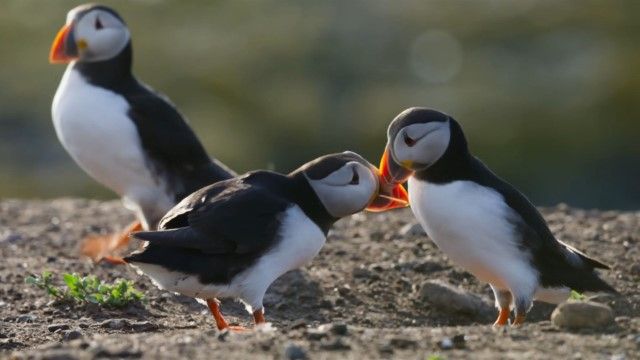

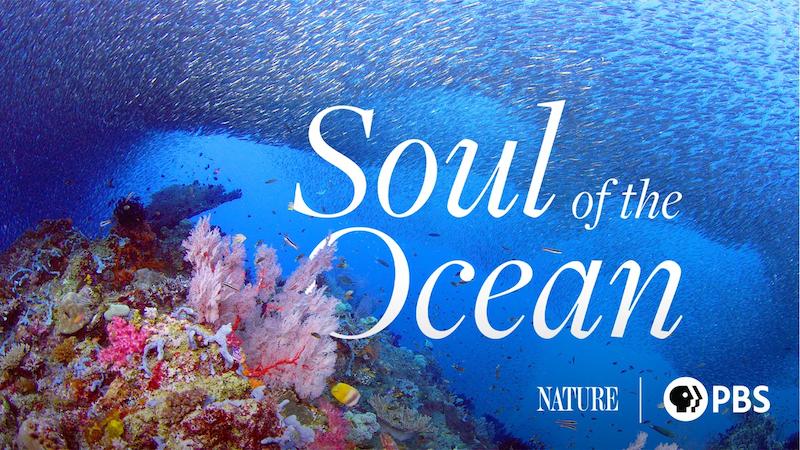


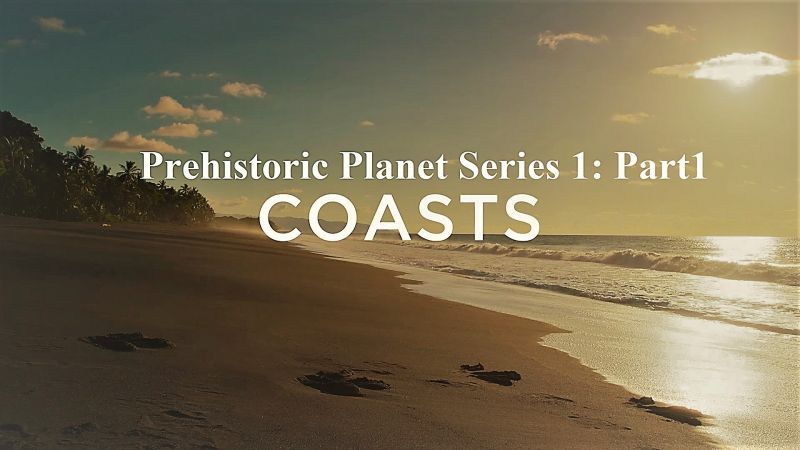
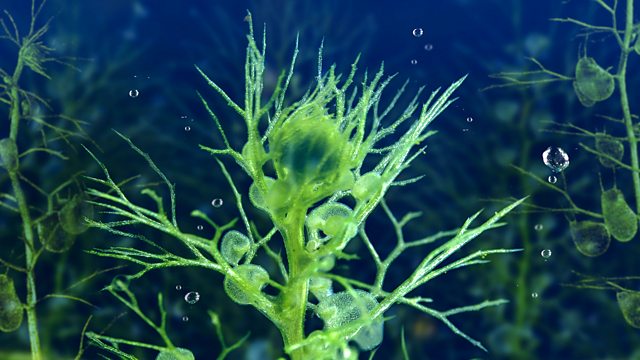
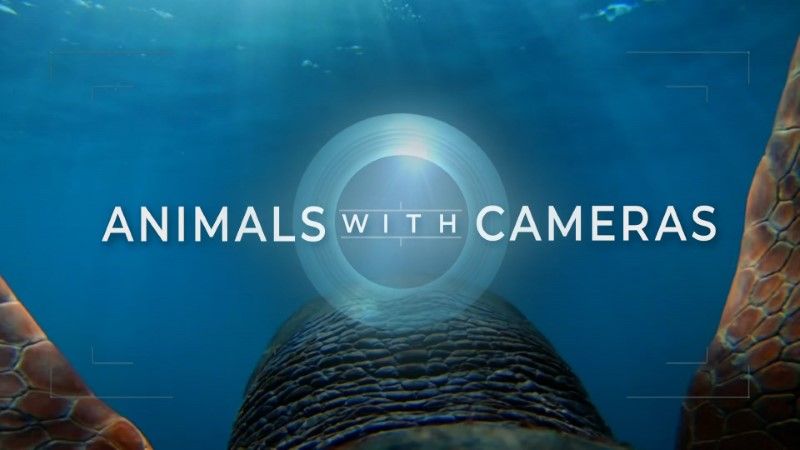

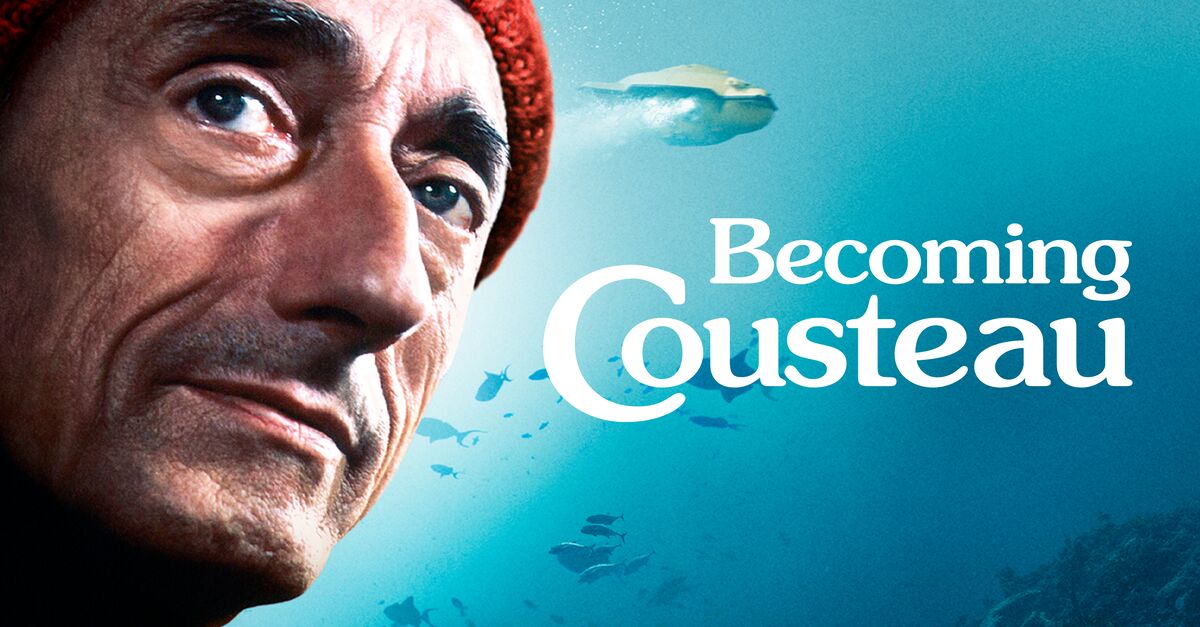
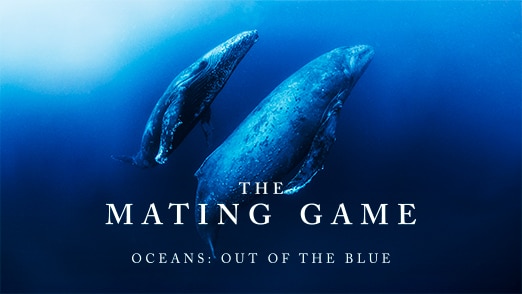
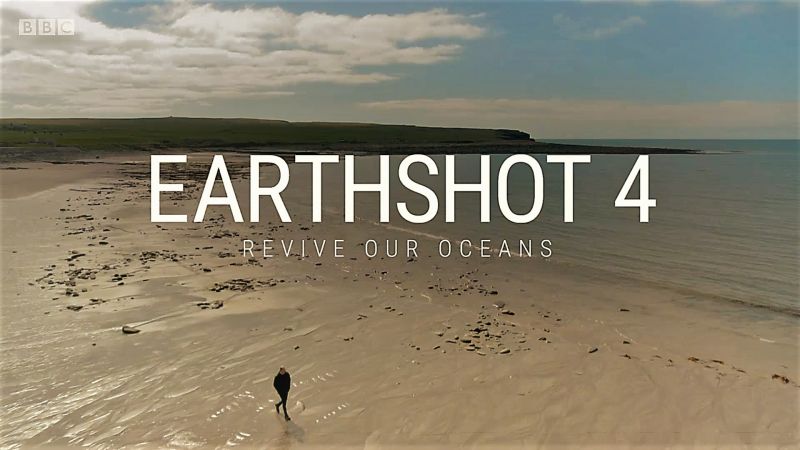

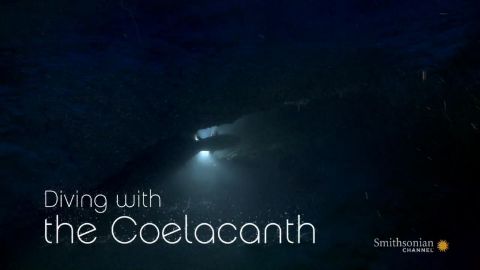
![Deep Trouble [Extra]](https://ihavenotv.com/img/12215.jpg)
![Making Waves [Making of]](https://ihavenotv.com/img/12214.jpg)
